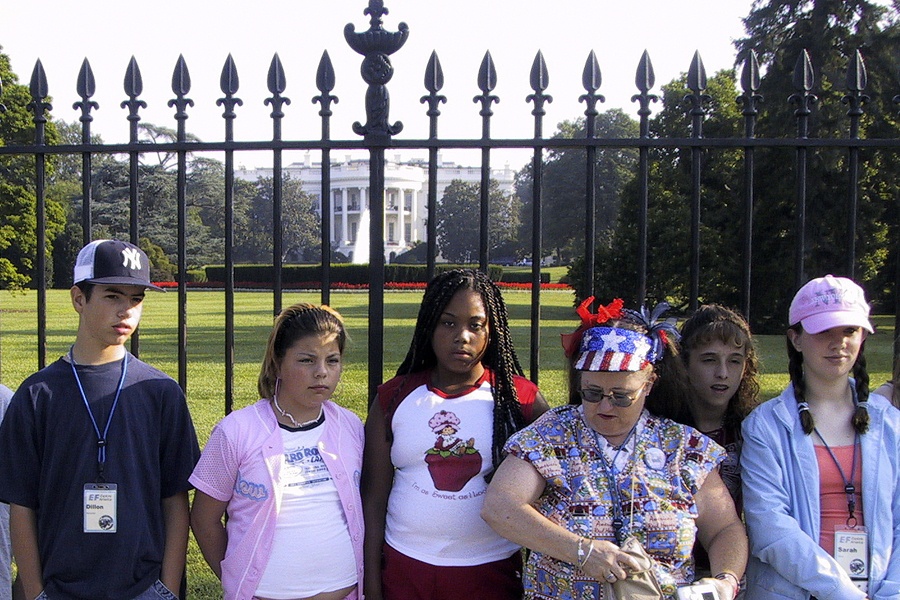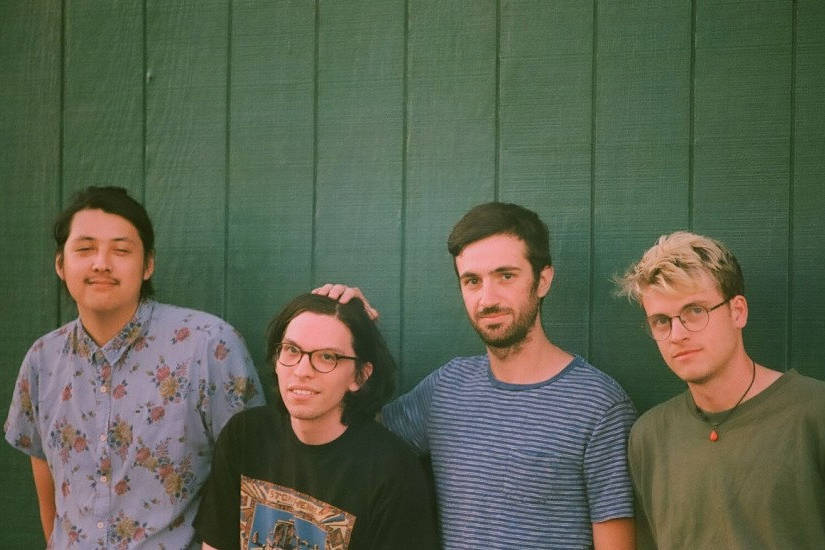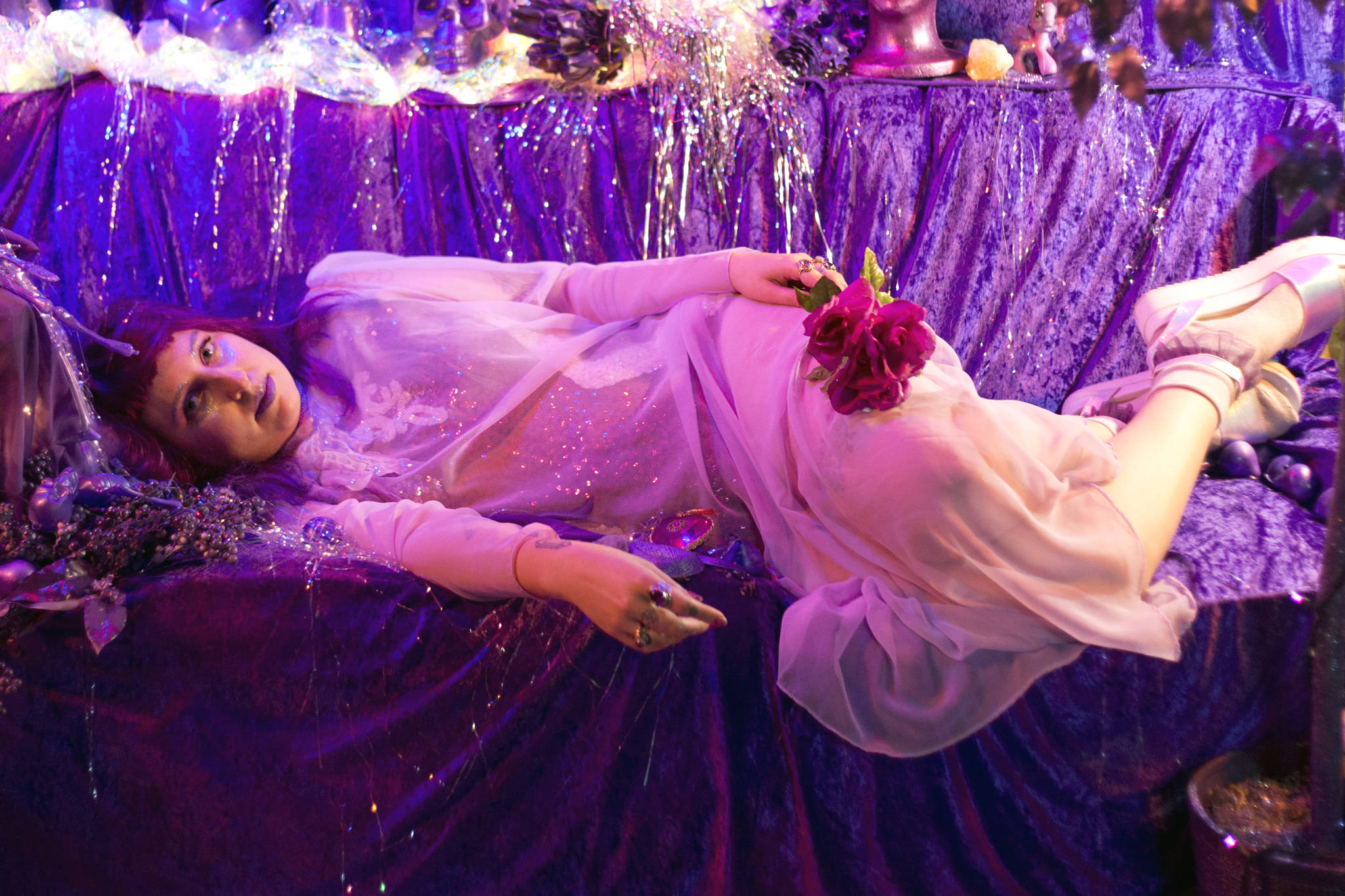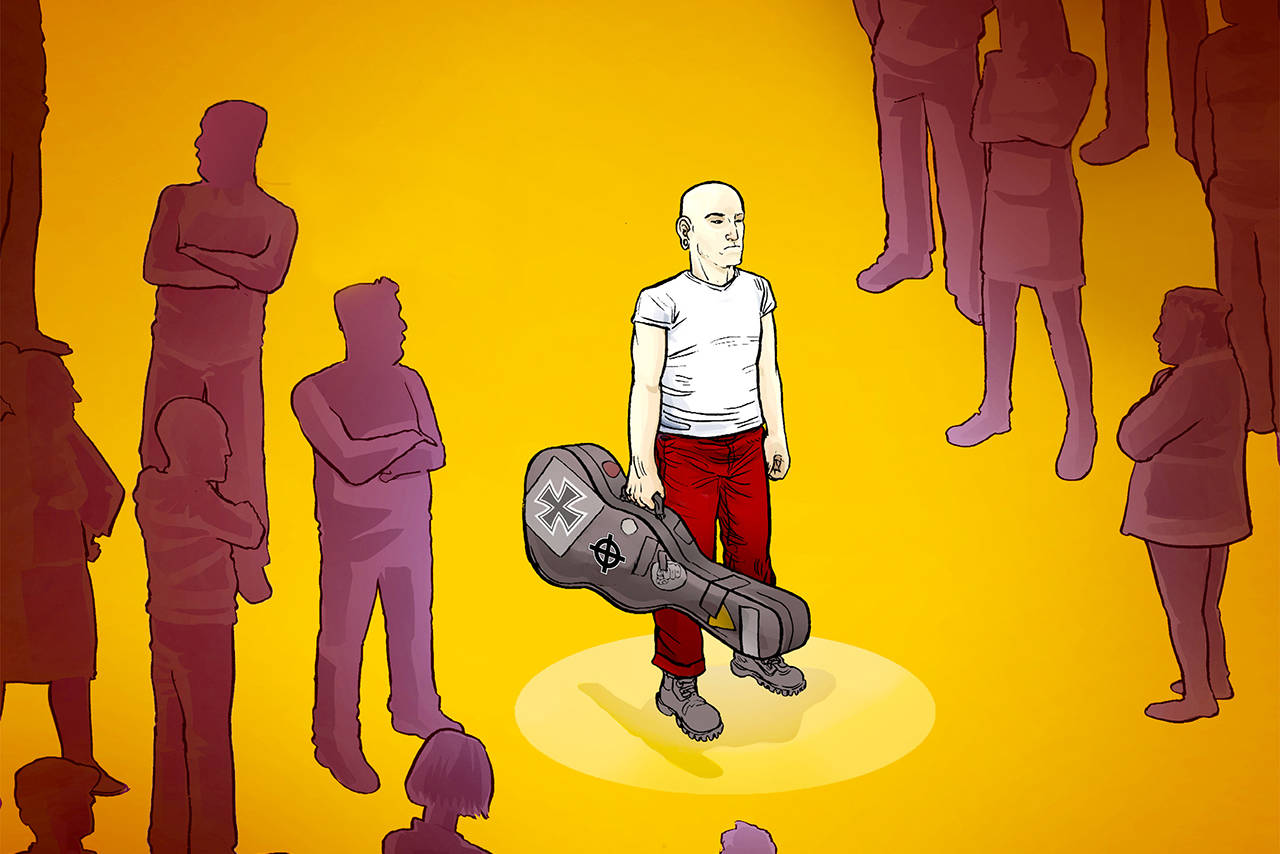The cover art of Guayaba’s debut EP, Black Trash/White House, shot by local artist Úna Blue, depicts the singer beaming up at the viewer, a beatific grin plastered on her face as she proffers a gigantic bag of garbage.
It’s a fitting image for the record, which deals with the 24-year-old musician’s lived experiences with bravado and self-deprecation in equal measure. “For me, a big focus of this album is liminality,” she says. “I feel like I’m in an in-between space of loving myself and hating myself a lot.” On the opening track, “Basura Negra,” she declares, “I’m fucked up in the head and I’m fat and I’m queer, and I am poor and black and may even be ugly, but I’m here.”
“I know that a lot of my self-hatred is institutional,” she says. “A lot of people keep saying you have to love yourself first before you love anyone else. In a lot of ways, I tried to make this a love letter to myself and to people like me. We’re not celebrated enough, so we have to make a celebration for ourselves.”
The Evergreen State College graduate has been making music since 2011, previously under the stage name Aeon Fux (a play on the ’90s MTV animated series Aeon Flux), and as Princess Neptune before that. Whereas her work as Aeon Fux showcased a sultry, gothic “doom-soul” sound permeated by a sense of overwhelming melancholy, Black Trash/White House brims with ebullience and swagger. “I’ve definitely been going for things that are brighter and bolder, and I think Aeon Fux had a darker vibe,” Guayaba says. “While this project does have a bit of darkness to it, it’s more saturated. I wanted this imagery that was colorful and juicy.” Her new name—the Spanish word for “guava”—came to her as she was sitting in the Puerto Rican restaurant La Isla in Ballard sipping a guava cocktail.
She turned to local hip-hop producer Caleb Talbert, aka Luna God, who created all the beats for the album, to help her realize that vision. For this record, Guayaba, who is Afro-Cuban, incorporated influences from dance-hall and fellow Afro-Latina artists, citing Princess Nokia and the French-Cuban duo Ibeyi as inspirations. “It was really cool to see artists from a similar background. It’s interesting how different all of our stories are,” she says. “I don’t hear a lot of these narratives coming from people in the Pacific Northwest because here, it’s very white, and a lot of our identities get lost in that.”
The title Black Trash/White House comes from a photograph of Guayaba in front of the White House on a class trip to Washington, D.C., when she was 11. She fell ill on the trip and felt miserable. The sole black student in the group, flanked by blank-looking white students, she scowls sullenly straight at the camera, wearing a Strawberry Shortcake T-shirt that proclaims “I’m as sweet as I look.” “Throughout my life, whenever people asked me about my background, I would always say, ‘Well, my friends are white trash, so I guess I’m black trash,’ ” she jokes.
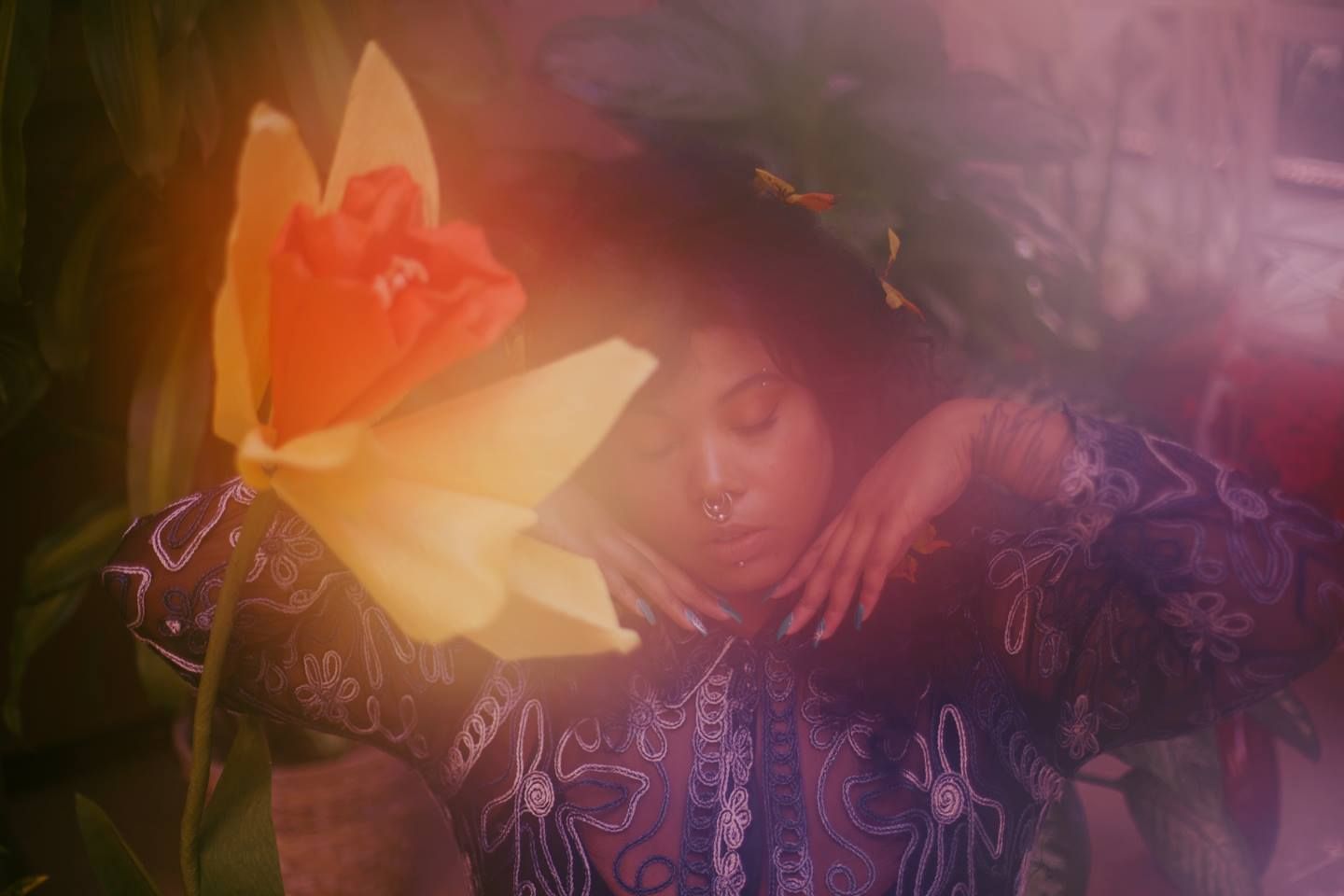
Photo by Úna Blue
In person, Guayaba is calm and soft-spoken, quietly confident when discussing her work. On Tumblr, where she has amassed a large following, she is vocal about her struggles with insecurity related to depression, anxiety, and mental-health issues. “It’s weird because I feel like it helps me create my art, but it also limits me in a lot of ways,” she says. “I dealt with a lot of anxiety with worrying if this was good enough to put out for people to listen to.” The album went through multiple rewrites before she finally felt prepared to release it into the world.
A lifelong lover of poetry and wordplay and a professed insect enthusiast, she weaves arcane entomological references into her work as deftly as the spiders whose species she name-checks. In the track “Brown Recluse,” the phrase “a rainy day” alludes to Araneidae, the family of orb-weaver spiders, while another verse in “Casa Blanca” rhymes “numero uno vata” with Paraponera clavata, the notoriously venomous bullet ant. (The preceding line, “I am the dark fertile soil nourishing in ways that others can’t,” also happens to rhyme with “bullet ant.”)
“A lot of what we talked about in my classes at Evergreen had to do with double consciousness, and the idea of triple and quadruple consciousnesses with different entendres,” she says. “I wanted it to be like an Easter-egg hunt for people listening, so that upon multiple listenings, they could get different meanings from it.”
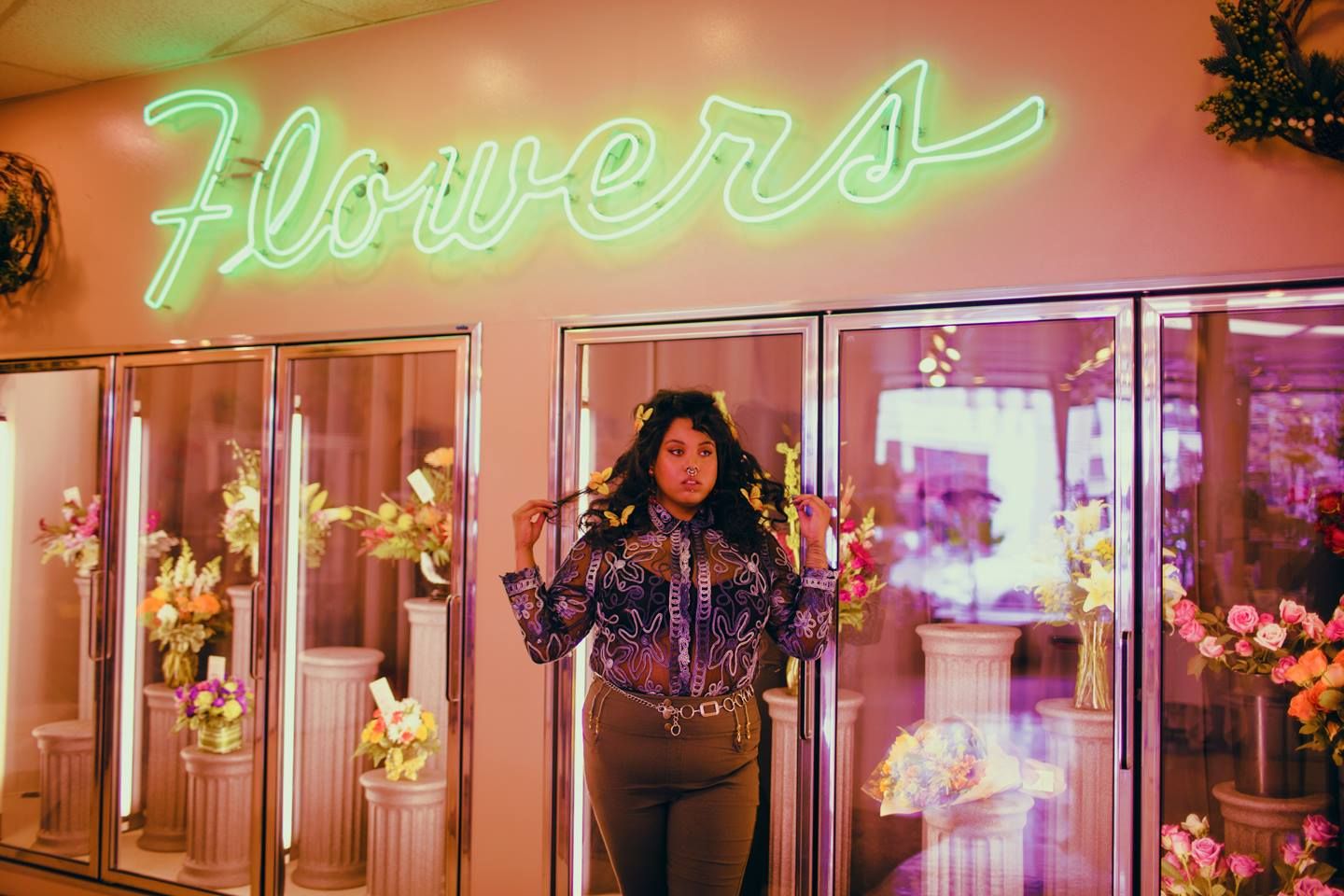
Photo by Úna Blue
In her lyrics, her feelings of alienation sometimes manifest in the way she aligns herself with things that usually provoke disgust, like garbage or insects like cockroaches, ants, and spiders. However, she’s since discovered a kind of power in reclaiming those icons as symbols of endurance and uniqueness. Nowhere is that pride more apparent than on “Brown Recluse,” in which she identifies with the ingenuity of arachnids: “I am the trickster/I am Anansi/Eight-legged, smellin’ like fresh calamansi/Rare and a treasure, I’ll always remember/On days when it feels like nobody else wants me.”
“I’m not going to deny there are still times when I feel like trash or like a bug,” she says. “But I’ve also over the years found beauty in those things.”
Radical self-acceptance is not an easy feat, but with Black Trash/White House, Guayaba has managed just that for herself and her following: an album that fiercely embraces even the bad days. Guayaba With Bug Bus Piano, DoNormaal, Brakebill. Central Saloon, 207 First Ave., 622-0209, centralsaloon.com. Free. 21 and over. 8:30 p.m. Thurs., Dec. 1.
music@seattleweekly.com
